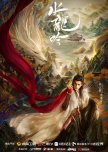
This review may contain spoilers
A very Chinese-flavour drama with eastern phylosophical ideas
WARNING: MAJOR SPOILERS -This post is part of a trilogy where I analyse only the cultural and historical artistic aspects, as well as two Eastern philosophical perspectives with strong presence in the drama, without tackling other elements such as wuxia themes, Confucianism, sci-fi inspiration, and so on. The links to the complete three-acts review with images are in the comments.
By accident when adding this part, I erased the previous review :
NOTE: Although the story is remarkable, the execution and direction has flaws that impact the overall result, so the final score is a balance between the outstanding aspects of the drama rarely seen in any kind of drama or serie (that gives the extra points to reach the 8) with its flaws. Luo Yun Xi and Jeremy Tsu - outstanding.acting
-------------
As we enter this THIRD and last ACT about Buddhism, the framework that gives structure to the whole story, it felt fitting to bring the classical theatre resource where a character steps in at the beginning to set the scene and offer context. Honouring that tradition, I’ll quote the answer that Mo’at gives to Jake Sully in the movie Avatar when he asks the Na’vi people to teach him their worldview and wisdom: “It is hard to fill a cup that is already full.”
This phrase didn’t just pop into my mind by chance. Buddhism is a philosophy and religion completely different from Western conceptions and beliefs, and since it sits at the heart of Shui Long Yin’s narrative, I tried my best to do justice to its principles. Although I kept things as concise as I could, this time you’ll need to be extra forgiving with me.
As actor Luo Yun Xi said himself (see ACT 2), Tang Li Ci seeks enlightenment. Let’s embark together on that search and see whether he attained what he was looking for, or if , at the very least, the journey was worthy.
Buddhism, the general framework
“All things are impermanent; they arise and they pass away.”
While Daoism is about finding harmony with the Dao, Buddhism is a path of understanding meant to transcend this world and the suffering inherent in it. It originated in India around the 5th century BC with Siddhartha Gautama who, after attaining enlightenment, became known as Buddha, or “the awakened one.”
The foundation rests on the Four Noble Truths:
1) Life contains suffering
2) Suffering has a cause (craving and attachment)
3) There is an end to suffering (nirvana and enlightment)
4) There is a path to end suffering
(NOTE 1 - Masters Puzhu and Fang Zhou // Although there is one “internal” path to end suffering, there are two “external” ways to walk that path. Puzhu represents the Buddhist archetype of the hermit who isolates himself from humanity and external distractions to walk the path. Fang Zhou represents the Buddhist archetype of the master who actively involves himself in worldly affairs with compassion.)
The ultimate goal is to wake up from the "dream" of cyclic existence, the Samsara, realising the true nature of reality. This is achieved by understanding and internalising several key principles:
Impermanence: All conditioned things are in a constant state of change.
Karma: The law of cause and effect, where intentional actions shape future experiences.
No-Self : The perception of a fixed, independent "I" is an illusion.
Nirvana: The unconditioned state, the cessation of suffering and the end of the cycle of rebirth, achieved by disolving all harmtful states of minds
So, let´s walk this path through Shui Long Yin together.
Impermanence: life as a dream or the stage of a play // “All phenomena are like dreams” - Heart Sutra
Some of the comments regarding the ending of Shui Long Yin revolve around the idea that everything Tang Li Ci did seems meaningless because no one remembers he existed. Even worse, not only are all the bad omens now living good lives, but TLC has never even existed. Was the whole drama, and all the time and emotions invested by viewers, pointless?
In the drama, Tang Li Ci voices a similar distressed question during his dream coma, and Fang Zhou’s answer guides not only him, but us, along the Buddhist path...and might add, the drama.
(NOTE 2 - Zhoudi Tower // In the dream, Tang Li Ci is disheartened and defeated because Yique YingYang is already back after ten years, and he feels that all the deaths and efforts back then were meaningless. Fang Zhou, a Buddhist teacher answers: “Even if YQYY is alive, are all the people who were able to live and enjoy life during those ten years not worthy of that?” … “In this world, not a second of effort is wasted.”)
By this point, we already know there are three stories: the original timeline, where Ye Mo kills Tang Li Ci only to realise that without emotions the Holy Son isn’t perfect and can’t achieve immortality; the second timeline, the one the drama actually follows; and the third one, the new life we glimpse at the end, where Tang Li Ci is no longer explicitly present nor ever existed.
So? Which one is real? The first one we never saw? The second one we grew attached to? The final one we only catch a glimpse of? Buddhism states that just as our dream experiences are mere appearances of the mind, so too are beings, their environments, their pleasures, and all other phenomena. The strong theatre-stage effect of the drama (ACT 1) seems to work like a visual metaphor of this.
(NOTE 3 - Tang Li Ci’s dream in Zhoudi Tower // From a Buddhist perspective, this dream and Tang Li Ci’s confusion about what was real bring up the topic of phenomena as mere appearances of the mind.
This doesn’t mean those phenomena don’t exist; it means they don’t exist on their own, only in relation to the mind. We believe the only “real” timeline in the drama is the one we just experienced because we formed a connection with it. The others feel unreal because we didn’t immerse ourselves in them, even though, at the back of our mind, we understand they existed too - but only from the moment we are introduced to them, not before.
We can see this idea represented in different moments and ways throughout the drama, through both cinematic and narrative resources: the contrast between chaos and fighting versus the calm, quiet tea scene in the Buddhist temple at the beginning; the reality in which Liu Yan lived all those years, where Tang Li Ci is a murderer and the most despicable being, versus Chi Yun believing the marks of Yique YingYang are beautiful and enhance Tang Li Ci’s attractiveness.
(NOTE 4 - All phenomena are like dreams // The quiet calm of a tea ritual and a baby sleeping at a lakeshore versus the chaos and action-packed fighting in the temple’s front yard.)
(NOTE 5 - Matrix (1999) – iconic sci-fi movie directed by the Wachowski sisters // The best way to explain it is this movie
2. Karma, suffering, and samsara: Even things aren´t “real”, we still suffer...Why? How? // “If you know your own mind and develop it, you will become a Buddha; do not seek Buddhahood outside yourself”
Every sentient being wants to be happy and avoid suffering. We tend to think that the causes of happiness or pain are external, but Buddhism states they actually lie within our own mind.
The mind isn’t a material object or a by-product of physical processes; it’s an immaterial and continuous entity, different from the body. Every action we take leaves an imprint or potential on our very subtle mind, and in time, its corresponding effect will arise. Virtuous actions bring happiness; harmful actions bring suffering. This is the law of karma, and it affects all lives, constantly.
At the beginning of Whispers of Fate, Tang Li Ci already has a partial understanding of these ideas taught by his master, Fang Zhou, and he reflects with the monk on intention and karma. When he decides to enter the jianghu, he is, without realising it, following Fang Zhou’s path to end suffering through the worldly-affairs way. At that point, his obsession and his merely intellectual grasp of these concepts and teachings prevent him from truly embracing them, as he still doesn’t fully understand what that way means or how it works.
(NOTE 6 - Tang Li Ci speaking with the Buddhist monk about intention, karma, and suffering. By entering the jianghu, he will come to learn and understand human emotions (hate, fear, love, obsession) and the deeper meaning of things, just as Fang Zhou told him many times.)
So, the world itself is the result of karma — the actions of the sentient beings who live in it. A pure world is the result of pure actions, and an impure world is the result of impure actions. Since all actions are created by the mind, all things, including the world, are created by the mind as well.
(NOTE 7 - Impermanence, karma, samsara // Every relationship and every character is shaped by karma and samsara. Hatred turns someone into an inherently bad person; attachment turns an object into something inherently pleasant and capable of making them truly happy. All mental afflictions work like this: they color reality with their own bias, and we end up responding not to what things truly are, but to the distorted version of them.)
While the body disappears at death, the mind - now called the very subtle mind, and without the memories of that life - continues to exist. Depending on the karma that grows, we reincarnate into a fortunate form (human or god) or an unfortunate one. We can’t choose; karma rules. This uninterrupted cycle of death and rebirth, without any freedom to choose, is called samsara.
3. The Path to Liberation from Suffering, and Enlightenment // “Samsara is like a wheel that turns through the force of contaminated actions performed by mental afflictions”
Mental afflictions such as attachment, hate, malice, jealousy, greed, and delusion are to the mind like clouds to the sky: bad habits that can be eradicated because they are not the sky itself. They are distorted perceptions that cling to things as if they had inherent or independent existence.
In the drama, this idea of clarity as the true nature of the mind is highlighted by Fang Zhou’s teaching: “Every person is born good” — which is also shared by Confucianism, by the way.
The strongest ignorance is the intuitive feeling that we possess a real and objective self that exists independently of other phenomena or things: the ignorance of self-grasping. Because we esteem ourselves so intensely, we feel attracted to objects and people that seem appealing, we desire to separate from those we dislike, and we feel indifference toward the rest. Therefore, attachment, hatred, and indifference arise. I’m sure you’ve already pictured countless examples from the drama while reading this.
Attention should focus on creating mental states that bring real happiness (love, patience, generosity) and also on letting go of mental afflictions completely by addressing their root: the mind’s tendency to cling to a fixed self. By tackling the causes of suffering within, external ones like illness or death lose their power to disturb us. This lasting freedom from mental afflictions and suffering is what Buddhism calls liberation, or nirvana. In other words, this is the path to truly freeing oneself from suffering.
There’s a sequence in Episode 2 that sums up everything above, so I’ll simply replay the dialogue, presented as a voice-over during the scene when Tang Li Ci is leaving the temple:
Tang Li Ci: “Masters and servants can turn on each other for money; brothers can betray and kill each other. In the end, the heart is the hardest to see through. Demons are everywhere.”
Monk: “Amitabha. Right and wrong, good and evil, they are just a thought apart. What you can’t let go is obsession. You’re very wise. You go through the sea of suffering by yourself. I believe you’ll eventually reach the other shore.”
** Some translation don't address the specific term "sea of suffering" but instead go for "salvation lies in your own hands". Although the essential meaning is the same, the second avoid the específico and direct reference to Buddhism - a bad take in my opinion as it's about Buddhist beliefs.
(NOTE 8) The path to liberation from suffering – The journey and the destination // From attachment to life, to the past, and to Fang Zhou, to loving new people and appreciating the human world and its beings, and ultimately managing to let go.
It’s worth noticing that, despite the different levels of wisdom each character had reached before the time reversal, almost all the villains’ endings carry a note of compassion. You might have thought “finally!”, but there certainly wasn’t a sense of “hate” or “I’ll wish you eons of suffering” left floating in the air.
Liberating only oneself from suffering isn’t the highest aim on the Buddhist path. Beyond wisdom, it’s kindness and love for others that form the true foundation for helping all beings reach the same state. Those who seek enlightenment do so guided by the mind of Bodhichitta: a mind that, moved by deep compassion, naturally wants to awaken in order to help all sentient beings directly.
The Buddhas are those beings that, having completely removed all traces of ignorance from their minds, have freed themselves from the dream of samsara and attained omniscient wisdom, along with the limitless ability to help others.
And with this understanding in mind, I hope you can find more meanings to the ones you´ve already found in Whispers of Fate. As for my part, the analysis of this trilogy has now come to an end.
** Epilogue (closing and ending notes) ** - I´ve link the three parts completed with images in the comments to a better review
Whispers of Fate is a drama about loss, grief, and attachments; but at its core, it’s a story that reflects on and questions what it means to be human from a very Chinese perspective, rooted in China’s history while staying in tune with its present. We see that search in every character, although I want to highlight three.
Nothing in this world is perfect, and neither is this drama. It’s a complex and ambitious project with a distinctive Chinese flavour that can look ordinary and simple on the surface, yet be slow and fast-paced, common and uncommon, all at once. And when we bring in our Western viewpoint, shaped by a Judeo-Christian background or even a modern secular mindset, we really do need to empty our cups first.
For me, the beauty of Whispers of Fate lies in its distinctive Chinese aesthetics, but also in the way it blends Eastern philosophies into its storytelling. In a way, the original title “Shui Long Yin” and its literal translation “Water Dragon Chant” is the most fitting, as the whole approach of the drama reminds me of those apparently simple tales and legends through which ancient cultures and societies explained the world, what it means to be human and why we are here.
Was this review helpful to you?
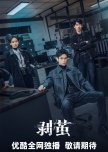
My dark horse thriller of 2025
In the last days of 2025, three different thrillers aired, and after a rough personal year in the genre, I wasn’t craving anything extraordinary - just good dramas. And, as with many things in life, the positive surprise came from the least expected. That’s how **The Truth Within** turned out to be my dark horse thriller of 2025 - *The Hunt* remains my favourite.Without diving too much to avoid spoilers, this is a five-case thriller with an underlying mystery (the sixth case), where case-solving and criminal procedures, with a strong emphasis on the forensic aspect, take center stage, very much in the vein of the best era of CSI: Las Vegas. Here, there’s no room for cops’ family affairs, personal life matters, the old master-apprentice trope, or the social commentary we usually see in the genre.
It’s a stylized tense drama, far away from a gritty vibe but also from the overly artistic aesthetic that’s becoming the opposite trend in the Chinese entertainment landscape since last year.
The two Taiwanese directors - there’s also a third, Chinese one who collaborates with them - have a renowned portfolio in thrillers, and you can tell. I love the storytelling here and how they enhance a solid script. The lighting, the overall cinematography, where the framing and the use of the camera help create the atmosphere, together with neat and efficient dialogue, give this project a distinctive and fresh personality that I deeply appreciate. Silence and unsaid words are also protagonists, but again, used with precision.
The straight, clean, and plain focus on the case-solving process feels refreshing. Although short cases aren’t my preferred jam in any genre or format - and that was one of my two main gripes about it - they have the right amount of length and flow, are interesting, and even tackle a theme I never expected to see in C-dramaland. The underlying mystery is well interconnected too, and the viewer accompanies the investigation team as the clues unfold. Overall, the pace feels right: neither slow nor rushed.
Production is excellent despite it not being a super-budget drama, and my other gripe with this type of series luckily didn’t become a nightmare: procedures don’t have major flaws that make you roll your eyes, and they managed to introduce the main role of the forensic doctor quite logically within the team dynamics and stories, resulting in balanced and fair screen time among the main team, as it should be.
I liked how they presented the dynamics between the characters. I appreciate that every team member has a distinct personality, and that they didn’t go over the top or force comic relief with any of them. Despite the precise approach to cases, you find yourself getting attached to all of them when danger arises - proof of a good script, solid execution, and good acting from the entire cast, not only the main leads (by the way, not the usual suspects in these dramas either).
If I have to remark on the things that bothered me, the one that sticks out the most is the three or four images that were unnecessarily censored around the middle of the drama, once it gained more views.
There were other minor issues that didn’t ruin the overall tone of the show: a subtle (edit: perhaps more than subtle for the trained eye) drop in quality in episodes 14 and 15 - I guess they left the direction to a director’s assistant/apprentice? - and a few inconsistencies toward the last two episodes, where the story changes the vibe a little due to the logical progression of it. Luckily, the uniqueness returns in the last 15 minutes in all its glory, and the show ends on a high note.
**The Truth Within** is not a gritty drama, nor one that delves deeply into social topics and leaves you ruminating after it ends, but rather one that keeps you on the edge of your seat, eager to press play on the next episode.
For those who like this type of thriller and want a project with personality, it’s a very tight drama.
Was this review helpful to you?

Born to Be Alive – A powerful Ode to Nature and Its Defenders (Inspired by True Events)
Context & Real InspirationThis environmental drama set in the Qinghai-Tibetan Plateau - the largest and highest plateau in the world, over 4,500 metres above sea level - presents the province of Qinghai’s nearly 30-year journey from "ecological vulnerability to green revitalization," with key moments such as the anti-poaching struggle in the Hoh Xil area and the pilot program of Sanjiangyuan National Park, spanning nearly 30 years since the mid-1990s.
This is an excellent, high-quality production inspired by real events. Today, the area referred to in the drama is the Hoh Xil UNESCO World Heritage site, and later others were added: the Qinghai Lake National Nature Reserve and the Three-River Source National Park, also known as Sanjiangyuan National Park, the source of the Yellow, Yangtze, and Lancang (Mekong) Rivers.
Before writing the script (an excellent one, by the way), the creative team interviewed over two hundred mountain patrol staff members and collected 137 true stories. The character of Captain Duojie, played by Hu Ge, is based on two real environmental heroes: the ranger Sonam Dorje – murdered by poachers – who, together with his team, fought to protect the at-the-brink-of-extinction antelope and the landscape of the Tibetan-Qinghai Plateau; and Zhaxi Duojie, who was found dead from a gunshot wound in his home the day after returning from giving an environmental lecture in Beijing.
Execution: From Production to Storytelling
One of the features that makes this drama so powerful is the fact that it was filmed in real locations. The Tibetan Plateau of Qinghai rises over 4,000 metres above sea level. Headaches. Lack of oxygen. Extreme weather. High solar radiation. Drastic temperature swings between day and night. Even simple conversations while walking can become exhausting. I don’t think people who haven’t been above 2,500 metres can truly imagine what it takes to film under those conditions. Kudos to the entire crew, both in front of and behind the camera.
The landscape is not only the setting but also a character, and we’re fully immersed in it together with the Mountain Patrol team, in the overwhelming feeling of roughness, untamed and wild beauty. The cinematography and soundtrack are simply stunning.
The drama avoids the simple approach of becoming a preachy, unrealistic piece or the dry tone of a documentary. Instead, it highlights the complexity of humankind, the clash between environmental protection and development, and our place in the bigger picture of things from the perspective of those ordinary yet also extraordinary people who form the Mountain Patrol Team, as well as their families and friends.
This is an ensemble cast full of characters to remember. Even when their screen time is short, they manage to make an impact. Just as Buddhist beliefs and Tibetan customs are naturally woven into the story, the cast itself reflects that blend, with a mix of Tibetan and Han actors.
Yang Zi as the female lead is overall good, but sometimes a bit lacking in the portrayal of the youngest version of Bai Ju – she always delivers in the emotional scenes, though. This isn’t a big issue, since as the character matures, her performance improves until reaching a solid, even grounded one from the mid-half of the drama onward. If you’ve seen Hu Ge before, you probably won’t recognize him here as the captain of the Mountain Patrol; if this is your first time, you’ll believe he’s been living on the Plateau all his life.
The story and pace remain impeccable from start to finish, with some exceptions around episodes 26 and 29, where the end and the beginning of the two main arcs collide.
The first arc, action-packed, is set in the mid-90s, with the Mountain Patrol fighting against poaching and illegal mining in an impoverished county, while the first controversies between development and environmental protection arise. The simple, stoic, rough, and poetic soul of the mountains flows through every scene and dialogue. This arc, ending at episode 25, is a powerful and unforgettable masterpiece on its own.
The second arc, set 17 years later, remains excellent and solid, leaning more toward an anti-corruption crime thriller that organically grows out of the central theme and events of the first arc, as well as the natural course of development that followed. The sudden change of vibe and setting strikes the viewer with the force and unpredictability of lightning, and it takes a few episodes to adjust to it. Keep watching, because the last ten episodes are gripping in suspense, and the climax and ending are another powerful display of very good writing and directing.
I think this is one of the great achievements of the drama. They took a very high risk with this decision, but the payoff is worth it for two reasons. First, they create another immersive experience where we, the viewers, share the same turmoil and feelings as the characters — it’s more than just understanding what’s happening. Second, the drama avoids depicting a simple, idealistic fight to protect nature and instead shows a more complex and realistic conflict around environmental and development issues.
Final Thoughts
Born to Be Alive, or Tree of Life as the original title in Chinese, is a high-quality show full of meaning and humanity that manages to move the viewer and provoke reflection while also paying a respectful tribute to our nature, the communities deeply rooted in it, and those who dedicate their lives to protecting both. A powerful drama that captures your soul while watching and lingers with you long after it finishes.
Was this review helpful to you?
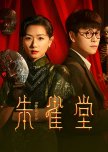
Where Agatha Christie Meets Chinese Thriller Style
That’s the overall vibe of this short drama, which I recommend to those curious about thrillers/suspense/crime shows but aren’t ready to dive into the heavier, grittier ones of cdramaland.Don’t get me wrong: there are a few murders that may not be ideal for dinner time viewing, but the pacing, tone, and tension are so well-managed that those moments hit just right, giving the drama the necessary dark touch of the genre. For seasoned watchers, I’d say it’s a fun, well made break that stands proud as the little brother – or step brother - among the long format family with its more serious and thoughtful content. It doesn´t have that oppresive atmosphere, but it´s not light either.
Being a longtime fan of Agatha Christie novels and all their screen adaptations, I can say this drama blends the mystery storytelling style of the author with Chinese elements and flavors. Coincidentally – or not - it’s based on a 2015 novel written by another female author, Gui Ma Xing.
The structure is classic: someone is torturing and killing women in 1929 Shanghai. As our ensemble investigation team digs into the serial murders and the identity of the killer, a deeper, darker mystery intertwined with them begins to unfold - all with fast pacing, overal well-structured transitions and enjoyable storytelling.
Acting
This is not only my first short drama, but THE first short drama in the industry starring two powerhouse actors known for their acting chops: the award-winning, often-nominated, and beautiful Wan Qian, and the young yet veteran chameleonic Qin Jun Jie—who you’ve probably seen before without realizing it was him, lol.
Like many, I tuned in expecting that their presence meant a minimum level of production quality besides good acting - and we were right! In short dramas, where episodes last only 10 to 15 minutes, acting is key. It gives dimension to characters that could otherwise feel flat or underdeveloped, and enhance the story. Here, the main leads have details, traits, and depth—even without tons of backstory shoved in your face. Sometimes, while a scene is unfolding in the foreground, subtle interactions play out in the background. The two other main cast members are good, and even those I didn’t expect much from, did well. That alone makes a difference.
The characters´ dynamic is engaging, fun to watch, and well-developed throughout.
Gao Ying is a badass woman torn between loyalty to her powerful family and the search for truth in order to protect the victims. An interesting grey character with more than meets the eye.
Xia Mo is a genius forensic scientist, both coward and brave, coping with a traumatic past through some mental issues. He adds the logics, the small touches of humor and tender (creepy tender?) to the mix.
Xia Yin Qi, her sister, is a materialistic and independent spirit who cares deeply about her brother’s wellbeing.
Detective Tang Zhen Yun is the well socially connected, justice-seeking young skilled fighter who also craves professional recognition.
Production
If you’re picky about production, breathe easy because this one delivers. It’s clearly a high-quality production with attention to detail (except for one or two hands here and there). The Republican Shanghai setting is well crafted, and the opulent Zhu Que Tang shines in all its decadent charm without looking fake.
It’s also filmed in ultra-high resolution, which makes it visually pleasing even for more demanding viewers, adding a novel element usually absent in short dramas till now. The editing is thorough: right fast pacing, smooth transitions in general.
The script follows a classic structure: successive, connected key events and clues push the story forward in a logical way, reminiscent of Agatha Christie’s best. The attentive viewer might pick up on answers not long before the reveals, but never with full certainty, keeping both seasoned and casual viewers engaged and away from boredom. You may guess who the killer is, but the why and how remains unkown. As the first arc (about the killer) starts to wrap up, the second, deeper – and darker - arc related to the killings begins to emerge stronger. At this point, Agatha Christie has bowed out and we’re deep in Chinese thriller territory, subject-wise (flashbacks included...)
Direction
The fast pace and “rough” execution style, which are jarring in a full-length thriller, fit the short format like a silk glove, due to its core characteristics. And the stakes stay high right until the end.
At this point, you have to consider the format limitations. What a long format drama does in its first two episodes (around 90 minutes), the short one has to pull off in barely a quarter of that time - roughly 20 minutes or so. So execution is key: setting up the characters, their dynamics, and the core mystery or plot points. Finally, those viewers should at least give the first three episodes a shot to get a real feel for the show before deciding to keep going or drop i
Social discussion... Short drama with purpose?
There’s a persistent thread of social commentary running through the drama — on women’s roles, both in the past and today, not just in society at large but also within the entertainment industry. Corruption and power, too, is tackled. These themes are woven into the characters, the plot, and even the subplots. I honestly didn’t expect that. There’s actually a lot to unpack here: from how they introduce these themes to the levels of analysis and questions it might provoke in such a short runtime.
While regular viewers of this format might find it perfect for commuting or killing time in a queue, if you're more like me, the best way is probably to binge it in one or two sittings.
This drama Ichecks all the right boxes that make it an entertaining and short, binge-worthy experience. Perfect for a cold, foggy night if you’re in the mood for something on the lighter side – but not light - of the cdrama thriller/crime genre.
Was this review helpful to you?
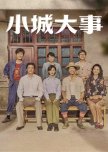
A flawless, inspiring, lighthearted drama with accomplished storytelling, based on a true story
"If the people who create miracles can be called extraordinary individuals, then Longgang´s extraordinary people are not just one or two, but a whole group of them" by Zhu Xiaojun from his book "China´s Farmers City".The Dream Maker is an uplifting, vibrant drama told in a lighthearted way full of humor and humanity that manages to tell an apparently boring and complex subject such as building a city in an engaging way. The pace is fantastic, the music is inspiring, the ensemble cast is on point and the feeling of that era - the 80s - is nicely done. The overall cinematography is modern but still has a touch of nostalgia. Last but not least, the ending is epic. Perfect from start to finish.
I wouldn’t be surprised to see this drama’s name during awards season, especially for direction and adapted screenplay - it's been a long, long time since I’ve seen such a flawless story and such accomplished storytelling. In the acting department, Huang Xiaoming, Chen Minghao, and Zhu Yuan Yuan are my favourites among the very solid lineup.
But what really sets it apart is that it´s based on a real story: Longgang in Wenzhou county, Zhejiang province, is the only city built by farmers in terms of efforts and funding during the era of Reform and Opening-Up.
The source of the script is a reportage research book called China´s Farmers City, written by Zhu Xiaojun, a winner of the Lu Xun Literary Award. In words of its author:
"I believe the most remarkable thing about Longgang is that, without being included in the national capital construction plan, it relied on the Reform and Opening-up policy of 1984 to blaze a new trail. It created a miracle in the history of urban construction in China and even the world - a city built by peasants with their own funds. This city also changed the destiny of hundreds of thousands of peasants, enabling them to achieve common prosperity."
The Reform and Opening-Up is a part of modern Chinese history that few people in this western part of the globe understand in its scale, impact and magnitude not just for China but for the world we are living now and in the years to come. Since the death of Mao Zedong in 1976 and the leadership of Deng Xiaoping during the 80s - and his influential power in the next decade -, and the following presidents, the country transformed from a pure communist society to the modern superpower we see today. A shift the world has never witnessed, as we are talking about merely of 45 years.
The Dream Maker is set against this backdrop, and at the begining of this era. As we saw, a rare case within China but in the world: a city built with the funding and efforts of its own residents, and by the leadership of one extraordinary man: the real Chen Dingmo.
The script took many years to adapt, and of course it took its liberties. While some characters have their counterparts in real life, others are a blend of two real people or were added to enhance the storytelling. But this is a real powerhouse cast that brings these fictional people to life: they´re not perfect or blunt, but just as real as people are.
The character of Li Qiuping, played by Zhao Liying, doesn´t actually exist in the book. She combines the traits of two other characters: the cultural depth and professional drafting skills of the university graduate Xie Fangming (in the book) and the forward-looking vision of Chen Dingmo. On the contrary, Secretary Zheng Da Cheng, played by the fantastic Huang Xiao Ming, is based on the real Chen Dingmo. You can tell the actor captured his vibe perfectly.
Finally, a special shout-out to the character Gao Xuemei, and the original protagonist: Chen Zhihui, the pioneer of Longgang´s Printing Industry. The power of women in Longgang, full of entrepreneurial spirit, is not only embodied by Chen Zhihui in real life, but also by actress Zhu Yuan Yuan. Her portrayal of the character Gao Xuemei is terrific, full of life, wit and will - all while suffering from cancer that nobody in the crew knew about. She died just sixteen days after the drama wrapped up filming.
I´m a strong believer in these stories, because although fictionalized, they´re based on real people. They might be less popular than real tragedies and fantasy romances, but by no means less important, entertaining or impactful to the heart and mind. The world is full of dream makers whose stories are worth telling and knowing.
If you like these types of stories or are looking for a positive view of the world, you can give this drama a try. It might not be for everyone, but it surely will become a classic in cdramaland, in my cdrama library and perhaps, in yours too. It´s a drama worth watching and rewatching.
Was this review helpful to you?

A powerful, unforgettable drama of epic scale
This drama is one of the ultimate examples of great storytelling, a truly epic saga inspired loosely on real events, set mostly during the first half of the Kangxi Emperor’s era (Qing Dynasty). It tells the story of the dreams of three men around the Yellow River—one of the five largest and most untamable rivers in the world—while also capturing the highs and lows of human life. It is larger than life, yet deeply personal.The setting and story (without spoilers):
The show spans from around 1670 to nearly 1690, and its core lies in the decades-long efforts to tame the Yellow River—a task that has remained a central concern for the Chinese government to the present day. As such, the drama unfolds in two main scenarios, intertwined settings: the river and its surrounding lands, and the imperial court.
Because of this historical backdrop, it helps to have a general idea of the era; otherwise, keeping track of names, time jumps, and court intrigues can be challenging. That was my experience, so I took a quick visit to Wikipedia—which helped A LOT. In any case, the drama is so well made that it makes you want to dive deeper into this fascinating period of Chinese history.
During this time, we follow our three main protagonists in their personal and collective struggles: the Kangxi Emperor, played by Luo Jin; the Governor of the River, responsible for the planning and execution of this ambitious project, played with a tour de force performance by Huang Zhi Zhong; and a young, free-spirited genius who calls himself the River’s God, played by Yin Fang. And then there’s the Yellow River itself, the omnipresent fourth character - majestic, nurturing, destructive, shaping lives and destinies as it flows across China and through time.
The trio is surrounded by complex, vivid characters, both along the distant river provinces and within the court, brought to life by seasoned actors whom you’ll come to love and hate at the same time - well, not all of them.
Court politics, power struggles, personal ambitions, greed, jealousy - everything unfolds like a high-stakes chess game that keeps you on the edge of your seat (and sometimes, your nerves). You’ll root for the massive project and for the two heroes who dedicated their lives to it, while being amazed by the incredible psychological portrayal of an Emperor who was one of the most important and powerful men of his time. You’ll follow them through years of failures and successes, fights and dreams, moments of happiness, frustration, and anger… You’ll cry, cheer, smile, and learn about politics, history, dams, and the human spirit.
Production:
The attention to detail is breathtaking, from the rugged riverbanks to the opulent court, with historically accurate settings and costumes. Kangxi Emperor ruled for over 66 years, overseeing one of the Qing Dynasty’s most prolific periods: he expanded the frontiers, and international relations with the West were also prolific. The drama incorporates this into the story naturally, helping us feel immersed in the time while connecting it cleverly to the plot.
The animated intro and the ending credits deserve a special mention. The soundtrack, script, editing, and direction are really good. From grand, majestic scenes to intimate power struggles or dialogues between characters, the hand of scriptwriter and director Zhang Ting is firm, sensitive, and clear. The drama isn’t fast-paced, but it never feels slow - it grabs you emotionally from the very first minute of the first episode and never lets go.
Definitely, a must-watch for epic story lovers. You won’t go through this drama untouched.
Was this review helpful to you?

The beautiful song of the common people
This slice-of-life drama from 2024 is among the most beautiful and warm pieces of art in the form of drama that I recall from recent years. I’ve seen masterpieces, immersive, rollercoaster-like, magnificent, simple, riveting, soothing, emotional, and touching ones, but until now, very few can be labeled as beautiful and warm. Born to Be the One is that.I approached it with mistrust, knowing almost nothing about it and expecting to get bored soon. God, I was wrong! I didn´t want it to end, I wanted to go on with them in their journeys.
It’s inspired by (and I would also say dedicated to) middle-class people in all shapes and forms. Perhaps now you’re thinking this is not a drama for you because life is already hard enough to immerse yourself in lives so close to your reality, but I tell you: the journey is beyond worthy. You’ll laugh, cry, reflect, enjoy, smile, get mad, feel understood, feel happy and not so — but you’ll never feel desperate, alone, or depressed. You’ll feel part of it, and part of its people.
The story is told through the lives of three couples. The main one is a family: they’re both 40 year old, have a 10-year-old daughter and an almost 1½-year-old baby. Each of this couple’s younger brothers has their own story: the female lead’s brother is in his early 30s and married, the male lead’s brother is in his late 20s and has a girlfriend. Their family backgrounds are also diverse: lonely mothers, widows, parents who live in the countryside, parents who both died in an accident. Same with their jobs, their work/career trajectories, and the different segments that exist within the middle class.
Through them, and in a very close and relatable way, the drama reflects on universal topics: the importance of choosing a partner who shares your values and of being honest about what you want in life; the struggles of women in modern society — in all shapes and forms; the idealization of the countryside and the big cities; the savage competition and stress in work environments and their consequences; the rising cost of living; family relationships; unemployment after turning 35 or 40. All possible scenarios are here.
There are so, so many scenes I’d like to highlight — again, beautifully done and acted — but I don’t wan tto spoil anything. They’re all so smoothly executed that the script deserves recognition indeed (and I usually don’t emphasize this aspect). I know the show has several nominations, and I wouldn’t be surprised if the script is among them.
The storytelling is also of my liking. The first episodes are slow because of the setup, but then the drama tackles so many things that, without realizing it, you’ll find yourself ruminating about them while not watching. The OST is also enchanting, inspiring, touching, warm — and it follows you unconsciously.
Finally, the acting. The main couple is flawless: so realistic and natural that many times you forget you’re watching a drama and feel like you’re spying through a camera in a real home. The rest of the main cast is also very solid, even the actress I usually don’t like and doesn’t have much range - Here, the character fits her like a glove. And the same can be said for practically everyone. Special shout out to the young actress who plays the daughter!
Although its setting is local and it addresses some local issues, humankind has no boundaries and neither does the core message of this drama: Life isn’t perfect and has its ups and downs. In the end, there isn’t one best way to live; everyone has their own, and as long as you’re not a bad person, you have to live your life in the way that suits you best and makes you happy.
It's a beautiful, warm, relatable, and truly universal drama. Hope you enjoy it too, if you give it a chance.
Was this review helpful to you?

This review may contain spoilers
You just need closure
The Long Season tt’s a simple drama with layered commentary—contradictory as it sounds—masterfully told by the director Bob Xin and crew, where everything slowly falls into place as the episodes progress. Also, do your appreciation of the beauty it carries, like a musical piece that builds in crescendo until it reaches its climax and then ends on a quiet but resonant note (The music analogy isn’t out of place here, as the soundtrack is an essential part of the storytelling and the final outcome).The drama may seem slow at first, but you can’t stop watching as each episode passes: every frame has weight, every detail matters, even when it feels like “nothing” is happening. One of those rare cases where I stayed for the complete intro and ending credits till the very end: you don’t want to rush into it, and you don’t want to rush out either. You could say the director managed to immerse you in the same limbo that seems to envelop the characters.
It’s hard to classify The Long Season: it’s a murder mystery, a human study, a social commentary, a tragedy. In that sense, the three-minute sequence at the end of episode 10 is fantastic: the inexorable events tied together by fate and unleashed by a finger’s snap somewhere unknown—as in the poem—like the running waters of the great river of life that we can’t escape.
The murder aftermath and the conflict in the fabric feel like a small-scale life approach mixed with social commentary: while the Reform in China was necessary for a brighter future of the nation and its people, it didn’t come without cost or collateral damage. The old productive model, the old social structure, collapsed and hit harder in some areas—especially in two generations: the middle-aged, who saw their once secure future crumble and were left with nothing but broken dreams, and the young, who simply didn’t have or see a clear future at all.
Among the latter, the most painful case is Wang Yang, as he was the only one who had figured out what he really wanted in life during those complex and chaotic times. He had talent, the means, and the courage to make their dreams real. He was a bright soul, unmatched by the hardships of life, unlike the rest. That’s the greatest tragedy.
It makes you question: is your fate decided? And by whom? Do your choices and beliefs really matter and have impact? And if so, to what extent? On one hand, the answer might seem yes; on the other, no. In the end, perhaps a mix of both? It’s about the tragedy of the characters, but also their role within those times of change, all intertwined and shown with the utmost artistic sensitivity.
Perhaps just live your life and do what you can with what is given? Life is like a melody, with its own story, logic, and parts, and we are just another element—important to the whole, but not so important as to stand as a single note no matter what we wish for. And here we are again questioning whether life is a dream and, if so, what’s the point... a recurrent theme in Chinese filmography that I personally love.
The three old men are, in this sense, three losers at different levels. Not only because they couldn’t keep up with society but mostly because they couldn’t keep up with their own expectations, for different reasons: a personal tragedy, a bad decision, no tools for adaptation. The sense of being outcasts and the weight of lost opportunities float throughout the whole drama. This middle-aged generation in the 90s was struck by the economic Reform and had the second half of the life they thought already secured taken away. They were left in limbo while the rest of the country, society, and the next generations thrived. They were the collateral damage for the brighter future.
But then, Wang Xiang isn’t a loser. He just needed closure for the tragedy that hit his life at the same moment the country shook off the old economic model. Despite enduring the harshest hardships, he rose wiser and stronger. He embraced another life and new opportunities in Yang Bei, the youngest generation with future). His Long Season ended with the revelation of the truth.
For me, what makes The Long Season so powerful is how it blends the personal (Wang Xiang’s tragedy and search for closure) with the generational (a middle-aged group left in limbo after the economic reforms) issues. All together with a superb script, direction, soundtrack, storytelling, and acting from the whole cast.
It just life, the circle of life.
And in this regard, the final message reminds me of how One Hundred Years of Solitude, by Gabriel García Márquez, closes, and what the author said many years later about that final paragraph:
“Before reaching the final line, however, he had already understood that he would never leave that room, for it was foreseen that the city of mirrors (or mirages) would be wiped out by the wind and exiled from the memory of men at the precise moment when Aureliano Babilonia would finish deciphering the parchments, and that everything written on them was unrepeatable since time immemorial and forever more, because races condemned to one hundred years of solitude did not have a second opportunity on earth.”
The older García Márquez changed his mind: he realized—and believed—that people do deserve and have a second chance on earth. So it seems with the director of The Long Season.
Was this review helpful to you?
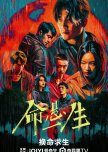
Lives Hanging by a Thread
This is a very sad, emotional, tough, and raw drama that carries a fierce social commentary disguised as a thriller. It is a beautiful yet deeply heartbreaking story that makes no concessions to the viewer. Not for the faint of heart, the show rewards far beyond expectations those who dare to venture into it: in my opinion, the best thriller of 2025, among my favorite thrillers overall, and without a doubt a story that has earned its place among my all-time favorite C-dramas.The Hunt isn’t free of flaws, but they aren’t significant in the overall picture. The crime-thriller plot is tight till the very end, and the gritty storytelling is well executed, never becoming boring or predictable. The different timelines flow naturally, never feeling forced or out of place, and the story unfolds slowly from multiple perspectives. The oppressive, doomed cinematography, the excellent production, a perfectly fitting OST, and overall solid performances strengthen the merciless social commentary.
Because beyond being a thriller about murders, this drama is a fierce story about the lives of the lowest classes, those left behind, the injustice of societies, and the trap of poverty. And it is the humanity and empathy with which this brutal reality is portrayed that set the drama apart and give it its beauty and soul.
The acting is solid overall across the whole cast. Teresa Li is very strong; there are certainly not many actresses within her age range who could portray this type of character with such accuracy in C-dramaland. Huang Xuan, however, is simply fantastic. Although the oldest of the main cast, playing a younger version of himself in the more distant past timelines requires some suspension of disbelief. I stand by the decision to keep the same actor in those sequences, as it not only helps the story flow, but his performance is powerful enough that you quickly forget about the issue.
Bai Yufan, in a prominent supporting role, is the weakest of the core trio—though still good. The on-screen dynamic between the three is excellent, but whenever Huang Xuan is absent, you can feel a decrease in intensity. Episodes 11 to 13, with another actor, Yin Fang, included in that dynamic, flatten the tension quite a bit—I don’t think he was up to the role. Nothing to cry for, though, as the final three episodes quickly escalate the conflict within the drama and between me and the drama.
The drama constantly makes you reflect on social rules, morality, your own values and perspective, on what is right and what is wrong. You find yourself agreeing and disagreeing with the characters and their decisions at the same time. It puts you in conflict with every character and every decision they make, no matter who they are. You understand them, root for them, reject them, dislike them, judge them, like them, wish them the best, wish them to be held accountable for their actions and decisions, and pity every one of them throughout the drama - sometimes all at once.
You can’t quite decide where to stand with the characters or with the themes tackled by the drama, and the ending reinforces that conflict. The fact that it has to pass censorship makes the dilemma even stronger. I believe the drama goes the extra mile with its preaching because the story is so human and the critique so fierce that a sense of injustice becomes unavoidable.
The Hunt succeeds in making you understand other people’s inner worlds and the lives of the lower classes without resorting to good-or-bad clichés. People are imperfect and complex, and the world is an unfair arena where everyone can choose, yet at the same time cannot choose freely. And this applies to everyone.
We look at the world through lenses of privilege: education, a safe home, food, health, money. And we tend to judge others through those lenses. But what about those who don’t have them? Can they make the same decisions? Do they really have the same range of options to choose from as we do? Do they have the inner and external resources required? And what should societies do in those cases? Should they be judged and held responsible in the same way as those with more opportunities and resources?
If destiny had placed us in their position, would we have thought the same way and walked the same path? How can we possibly know? But on the other hand, what justifies killing? Can killing be justify? Are all killings the same?
Can society judge and condemn with the same severity those whom society itself has failed? If not, what message is left for everyone else—those with more resources and privilege, and those at the bottom, trapped in the same cycle of injustice? What would be the outcome in any of these scenarios?
I like the questions the drama provokes. A thriller doesn’t usually go this way. The answers? I was conflicted, but with a calm mind they are clear. And that is why, for me, this drama is superb. It shakes my seemingly well-defined world and values, and makes me think as much as it makes me feel - and oh, how deeply I felt this drama! It takes you out of your comfort and safe zone, in a beautiful and deeply sad way.
I loved The Hunt.
Was this review helpful to you?
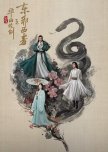
Duel on Mount Hua: Eastern Heretic and Western Venom
1 people found this review helpful
Amazing wuxia through and through
This 8- episode drama is part of the recent Duel on Mount Hua saga — a prequel that dives into the backstories of iconic characters from Jin Yong’s wuxia classic Legend of the Condor Heroes — and, in my opinion, it’s the bestt chapter from beginning to end.First, a clarification: each drama in this saga has different scriptwriters, directors, and cast members, although some of them cross paths in the final one. This means the vibe, pacing, storytelling, acting, and even the production aren’t aligned or cohesive. From the start, I decided to approach them as independent projects — you can do the same or go for the whole saga.
So, for this review, I’m talking only about Eastern Heretic and Western Venom, written and directed by Xu Bing.I’m highlighting him because people often overlook the importance of these two factors when watching dramas or films, focusing only on the actors — and I think this saga is a perfect example that really shows it.
The pacing here is fantastic. In each episode, not only you discover more about each character, but you see them evolve logically as events progress. The story unfolds smoothly, mixing awesome fights, bits of humor, and dramatic moments that gradually build in intensity, leading to a powerful climax near the end. You’ll find loyalty, friendship, lessons learned the hard way, misunderstandings, martial artists with distinctive techniques, tragedy, love, betrayal, cunning villains, morally grey characters… and so on.
One of its biggest strengths is the old-school martial arts action: close-quarters combat with fists, swords, and other down-to-earth weapons. They´re well chorewell-choreographed and filmed, have momentum, and slow-motion is used sparingly. The actors are also believable as fighters – you could even recognize some faces! People get dirty here (literally), and they die.
Direction is outstanding, and so is the script. The whole show has a raw, rough vibe that matches the story without losing emotional impact. There’s no forced poetic touch, no visuals pushed over content, and no music trying to force epicness. Yet, the soundtrack is amazing — from scene music to the ending credits. Sequences are exquisitely filmed, pleasing to the eyes without visual overstimulation, heavy filters, or forced aesthetics.
The casting is chef’s kiss. Not only are there seasoned actors, but also a director who knows how to get the best out of everyone, including the supporting cast. Zhou Yiwei steals the show, but Vengo Gao Weiguang is also charismatic, and the chemistry among the main cast is great.
So, if you’re looking for a wuxia with an old-school vibe, a compelling story, and entertaining, well-choreographed fights, this is without a doubt the drama you need to watch.
Was this review helpful to you?
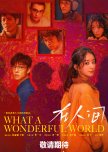
Three things you need to know to better appreciate this drama
This short, meaningful, and deeply unconventional drama is a journey toward healing and self-love that takes us, the viewers, on a compassionate and empathetic ride through the inner world of someone struggling with mental health.It’s not a romance. It’s not a thriller. It’s not sci-fi or fantasy (don´t believe any of the possible categories they tag it). Bear with me a little longer, because if you’ve started this drama and dropped it, or are just curious about it, trust me: it’s worth the try at some point in life.
Thruth is, you can’t come into this show the same way you do with others, not just because of the subject matter, but because of the director’s intention: to create a form of storytelling that immerses you fully in the protagonist’s mental state. So, besides being in the right state of mind and mood, here’s what I suggest to truly appreciate the watching experience, IN THIS PARTICULAR ORDER:
1. Don’t go in blind if you aren´t a seasoned film and series watcher of different genres
Beyond the basic MDL synopsis, which tells you this is the story of a person with Dissociative Identity Disorder (DID), it really helps to know a bit more about the condition itself. That knowledge is what allows you to surf the, at first, seemingly disjointed and confusing waters of the narrative, and connect with what and who you´re seeing.
The following is enough: DID—previously known as Multiple Personality Disorder—is a mental health condition where an individual hosts two or more distinct identities, each with its own personality, voice, memories, and even physical traits. These “alters” may or may not be aware of each other.
“Dissociate” literally means to disconnect, and this disconnection often results in memory gaps besides affecting the ability to connect with reality. DID is typically a response to severe trauma, especially in childhood, where the mind protects itself through this division of identities.
2. Pay close attention to everything.
Every line, every strand of hair, every written word (or character, lol), every little detail that appears in the frame matters. Understanding the basics of DID is what allows you to catch the subtle clues that drop constantly throughout the series as scattered puzzle pieces that slowly start to align.
How each characters stands, who does what, the visual methapores, a reflection in the floor, all matters. By the time the thruth comes out on ep 6, you´ve already figured it out enough to be prepared for it, but not enough as to stop watching and know the final outcome.
3. Let it goes and enjoy the ride.
Don’t try to force this into a box of what a drama “should” be—especially one dealing with mental health. As I said before, this show doesn’t tell you what’s happening. It doesn’t even really show you. It puts you in it. For that, allow yourself to be vulnerable, and surrender to the director’s vision, the brilliant cast, the poetic cinematography, and the unique narrative flow.
Was this review helpful to you?
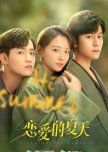
An unexpected realistic portrait of love and relationships in adult life
I had chosen Discovery of Romance in the first place because of the main male lead—an excellent actor, Qin Jun Jie—and although I already knew the female lead, Janice Wu, she hadn’t really stood out to me until now. Here, she’s really good and believable. Of the three main protagonists, the second male lead is the weakest. With a different casting choice, things might have been a bit more interesting and the overall score would´ve been higher. His acting isn't good.This is a story of second chances, growth, and life, told in an engaging way, with the three main protagonists breaking the fourth wall from time to time. The first 10 to 13 episodes are comedy gold. In the middle part, the tone begins to shift as we learn more about everyone involved, and the final stretch (episodes 20 to 26) ... well, be prepared, it’s touching.
That said, this show is not for everyone. It's a “kind of love triangle” without really being one, since that first encounter pushes the ex to fight for the girl to come back to him—a difficult task, considering the female lead is in a relationship that checks all the boxes, at least on paper. As I said, the first 10 to 13 episodes are gold—I have so many many many favorite hilarious moments. Then the tone slowly changes, and by the end, it becomes deeply emotional – although ends in a high note again.
The protagonists are entering their 30s, and that’s clearly the target audience: people in their 30s and older. You need to have lived a bit, to have experienced life's ups and downs, heartbreaks, failures, longings, and struggles beyond your 20s, to fully appreciate, understand, and reflect on what’s happening, both in general and within each character, and why they make the choices they do.
There are no purely good or bad people here, just human beings being human: imperfect, selfish, immature, arrogant, insecure, caring, ambitious, sweet. They made choices, and they hurt themselves and others in the process. Some will grow more than others. That’s real life. They’re not perfect or always likable, but you won´t hate anyone. I think this is the drama’s strongest point together with the acting and the chemistry between Qin Jun Jie and Janice Wu. It feels real, with real people. And because of that, it's by no means perfect—but it’s solid and genuinely good.
I won’t spoil the ending. I was pleasently surprised, because I didn’t expect to find such a real and touching drama.
Side notes:
The friends/side characters follow the trend of early 2020s dramas, with a slightly cartoonish tone, but nothing you can’t handle. Overall, the acting is solid across the cast—except for two characters who are just boring to watch. I skipped some of their scenes (very personal preference, of course, as this review).
The English title is bad. The Chinese title is much more accurate—it plays with the name of the female lead and the ideas/situations of love. I guess in those years “Romance” and “Love” were trending, and “Blossom” wasn’t on anyone’s radar yet.
Was this review helpful to you?
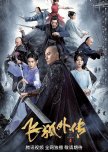
Amazing fights and story since beginning of ep 1
I’m not so fond of modern wuxia, although in the 90s I watched lots of movies about the themes so common in this genre. I’m an idealist, so the core values and main themes resonate with me. I also like adventures, subtle love, complex and/or tragic characters, and layered stories. In modern times, with modern aesthetics, I hadn’t found anything that really really caught my attention in wuxia: sometimes the production is good, yeah, but there’s no soul; sometimes the acting just doesn’t click and the fighting isn’t strong enough to make a lasting impression; sometimes the love story is too sweet or too romantic? I’ve tried the most famous ones of recent years and dropped them all… until I crossed paths with Qin Jun Jie in Heroes (2024). I was sold by his acting and charisma and then I found Side Story of Fox Volant. Imagine my joy when I saw Lin Yu Shen was also in it—an actor whose dramas I haven’t seen much of, but also like.So, I’ve already told you two excellent reasons to watch this show:
- Qin Jun Jie (Hu Fei, and also plays his father, Hu Yidao) is the young protagonist on his path of growth;
- Lin Yu Shen (Miao Reng Fen), the mature, tragic, and almost unbeatable best martial art master of the jianghu - the world of martial arts.
The acting, the charisma they both ooze, and the physical effort they put into the fight sequences are amazing - their scenes together are a delight because of the extra chemistry they exude .
Of course, choreography and direction are crucial in these types of scenes, and in general, the whole drama is excellent in this regard, with at least one good and entertaining fight in each episode. You also have female warriors or martial artists, with agency, personality and technique, but nothing can compete with the close-combat sword fights of the two male protagonists, who are totally believable in their roles. You can tell they trained. In this regard, the opening fight and the one in episode 22 are, for me, the best in a drama where almost every fight is top-notch. I found myself smiling and jumping out of my seat like a child from pure enjoyment. The camerawork was excellent here.
The fights are sometimes quick and sometimes rightly long, but always intense; sometimes brutal, but always entertaining—and in all cases, a pleasure to watch. What did I like the most? The unbeatable hero is presented in a way that makes you totally believe he really is the best and unbeatable—you’ll understand when you see it. The director definitely knows how to create an aura and make you root for a character, lol.
You´ll find some slow-motion, but they aren´t overused and what I liked about them is that they’re mostly reserved for moments outside the fights. My favorite, of course, is the one near the end—and you’ll know it when you see it.
The music enhances the story, the scenes, and the fights. Both the opening and ending themes capture the spirit and tone of the show. The opening one is inspiring, adventurous, and grandiose, but my favorite is the ending one—bittersweet, melancholic, and beautiful. So yeah, you more or less know what to expect now...and by the end of ep 1.
The pace is fantastic, and with the exception of 2 or 3 eps in the middle, it keeps you hooked non-stop. All the characters have a part to play, the plot is cohesive, and the production and acting is solid. One important thing: you have to keep in mind the time setting and genre, as there’s a lot of Confucianism, Buddhism, and wuxia values/principles/ideas that may seem difficult when seen from a Western and modern perspective. Perhaps the Qing Dynasty style might be discouraging for some, but when the acting is so good—have I mentioned how charismatic the two main male actors are?—you soon forget about it, and you’ll even find some characters attractive.
Hope you enjoy this show as much as I do if you like this genre or similar kinds of stuff!!
Was this review helpful to you?

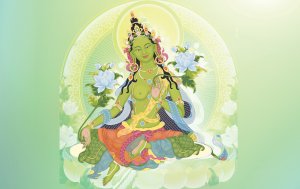
 1
1 2
2 1
1






